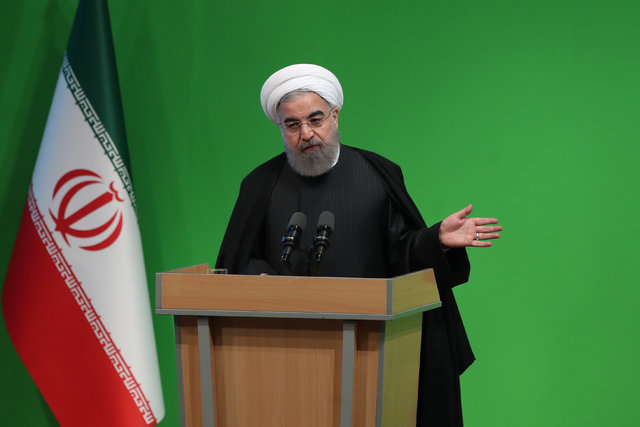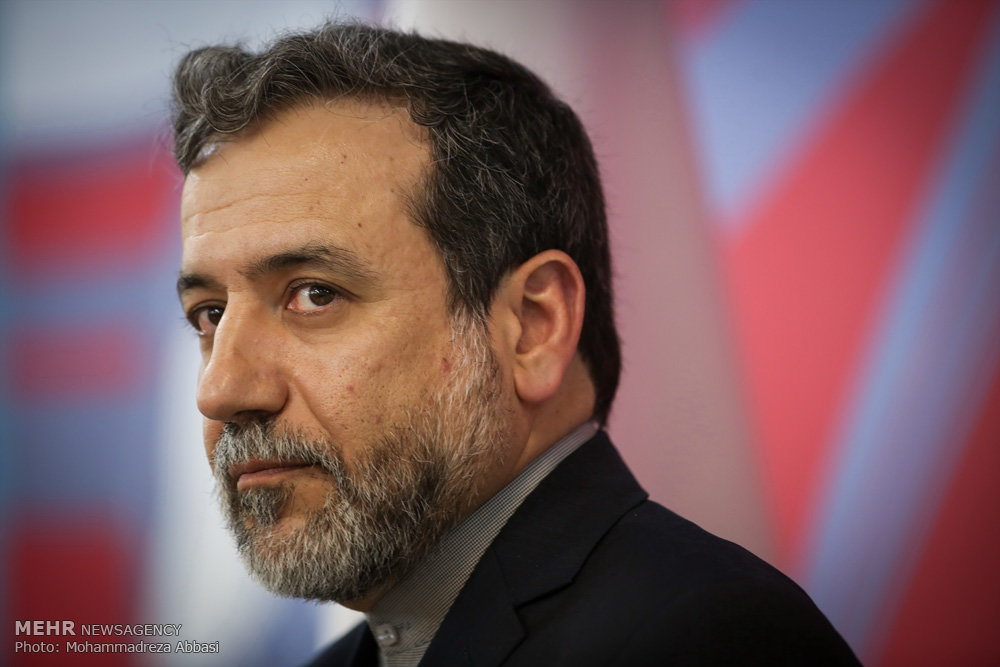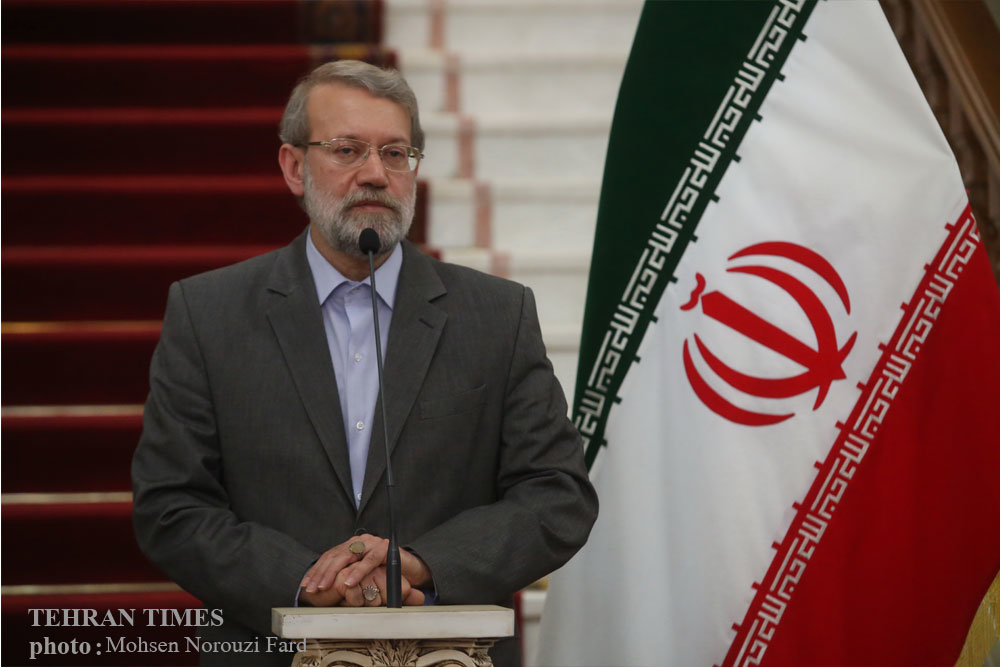Rouhani downplays new U.S. sanctions, threatens retaliation

TEHRAN – In a cabinet session on Wednesday, President Hassan Rouhani downplayed the new U.S. sanctions against Iran, asserting the move will fail to shatter the Iranians’ confidence.
“Such sanctions have no influence on the Iranian nation... Neither do the sanctions reduce the resistance of the people and the Islamic Republic of Iran nor do they change our policies,” Rouhani asserted.
Rouhani’s comments followed a bipartisan bill on Tuesday afternoon by the U.S. House of Representatives that includes new sanctions against Russia, Iran, and North Korea. The bill sailed through on a 419-3 vote.
The legislation moves to the Senate, but it's unclear when the Senate will vote on the measure.
The bill also allows Congress to block President Trump from vetoing the legislation because it has already been passed by veto-proof margins.
"This is a strong, bipartisan bill that will increase the United States' economic and political leverage," Rep. Ed Royce, who heads the House Foreign Affairs Committee, told reporters on Tuesday.
In addition to a reprimand for Russian interference in the U.S. 2016 election and a punishment for North Korea, the Iranian portion of the measure introduces new economic sanctions against Tehran over its ballistic missile program and what Washington calls the country’s “destabilizing role”.
Iran denies it intervenes negatively in the Middle East, and unlike Washington, says its missile program does not violate UN Security Council 2231 which endorses an international nuclear deal with six world powers, including the U.S.
The resolution "calls upon" Iran not to "undertake any activity related to ballistic missiles designed to be capable of delivering nuclear weapons, including launches using such ballistic missile technology".
Iran has carried out several missile launches since the signing of the nuclear deal in 2015 which removed sanctions against Tehran. On the missile-related sanctions, Rouhani said Iran keeps upgrading its “defense capability.”
‘U.S. should learn from successive failures’
Rouhani, who will be inaugurated on August 5 for a second four-year term, said, “Without regard to their sanctions and policies, we continue our path.”
Rouhani also stressed that Tehran will take any measure to shore up the country, urging Washington to learn from “successive failures” in the past.
“We take whatever measures deemed necessary to strengthen the country,” he emphasized.
Iran says new sanctions can hurt nuclear deal
Tehran has warned the new sanctions may endanger the nuclear accord, now into its third year.
In a statement on Wednesday, Iran’s Foreign Ministry denounced Washington for the move, saying Washington is not keeping its end of the bargain as required by the nuclear accord.
“The U.S. House of Representatives, with the adoption of these non-nuclear sanctions, and in the event of its finalization and implementation, has ignored and threatened the implementation of a multilateral and international agreement that is the result of efforts made in several years," Foreign Ministry spokesman Bahram Qassemi said.
Qassemi noted that Washington is obligated to fulfill its commitments under the Joint Comprehensive Plan of Action, the official name for the nuclear accord.

Foreign Ministry spokesman Bahram Qassemi
“A country’s domestic laws and legislations cannot be used as a pretext for governments to evade their international responsibility,” he asserted.
Since Tehran has been in full compliance with its commitments as acknowledged by the IAEA and the 5+1 group, it expects other signatories to comply with their commitments, the official stated.
He also said Iran would take reciprocal actions against the move.
Qassemi also said Iran will not compromise on its defense capability. “Nothing can prevent the Islamic Republic from pursuing and implementing the principled policy of increasing its defense capabilities.”
The Foreign Ministry spokesman also faulted the U.S. for the spread of terrorism in the region and beyond.
“The U.S. congressmen accuse Iran of destabilizing the region while their government, by invading Iraq, had a key role in creating such terrorist groups as ISIS. The increase of instability and the current extremism in this region are the results of the unconsidered and irresponsible policies of this country and its regional allies,” he explained.
Iran will respond firmly to U.S. ‘hostile’ move
Tehran will respond “firmly” to the move which is a “clear hostile action”, Deputy Foreign Minister Abbas Araqchi said, adding “practical measures” will be taken in this regard.
The top diplomat who was heavily involved in the talks to clinch the nuclear agreement noted that while the new sanctions are not related to the nuclear sphere, the act can negatively influence the successful implementation of the deal.
The deal requires Washington to implement the agreement with “good will” and in a “constructive atmosphere” and to avoid taking any action that prevents a successful implementation of the accord.

Deputy Foreign Minister Abbas Araghchi
“During the past six months, the new U.S. administration has certified Iran’s commitment to the JCPOA for two times as it had no other choice because the International Atomic Energy Agency has issued seven reports which clearly confirmed that Iran has abided by the deal,” he explained.
President Trump agreed on July 18 to recertify that Iran is complying with the nuclear agreement.
According to Reuters, Trump said on Tuesday that Tehran should adhere to the terms of the nuclear deal or else face “big, big problems".
He told the Wall Street Journal on Tuesday he would be surprised if Iran is in compliance with the nuclear deal when recertification comes up again in three months.
Araqchi, the deputy foreign minister for legal and international affairs, said Trump’s threatening words will not be materialized.
“However, we will wait and take practical measures regarding their moves.”
Trump has taken a tough stance against Iran since he took the helm at the White House on January 20. During his presidential campaigns, he vowed to tear up the nuclear agreement, though later he said it would be difficult to annual a deal backed by the UN Security Council.
In an interview with CNN’s Fareed Zakaria earlier this month, Iran’s Foreign Minister Mohammad Javad Zarif said “the United States has failed to implement its part of the bargain,” citing the fact that Trump “used his presence in Hamburg during the G20 meeting in order to dissuade leaders from other countries to engage in business with Iran.”
Parliament speaker says commensurate measures underway
Reacting to the sanctions bill, Parliament Speaker Ali Larijani pointed out that lawmakers are closely monitoring all moves by the U.S., saying Iran and will make swift decisions accordingly.
“We have the capability to [adopt] many measures proportional to the Americans’ conduct,” Larijani told reporters on Tuesday.
He added that the Iranian legislators would discuss U.S. moves at various committees of the parliament and would immediately examine them at the floor.
He said the legislation indicated that Washington has failed to fulfill its obligations under the landmark nuclear agreement.

Parliament speaker Ali Larijani
The top parliamentarian said American officials wrongly assume that it will be beneficial to them if they breach the JCPOA, adding that this would be detrimental to them.
“We have good nuclear potential and can change the situation immediately,” Larijani pointed out.
On Tuesday, Larijani said Iran can “limit” the International Atomic Energy Agency’s monitoring activities of its nuclear program if Washington thinks they are not enough.
He also noted that if the deal fails, it is Washington who would suffer the greatest.
PA/PA
Leave a Comment